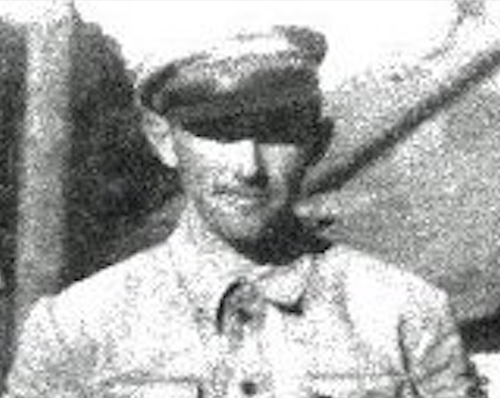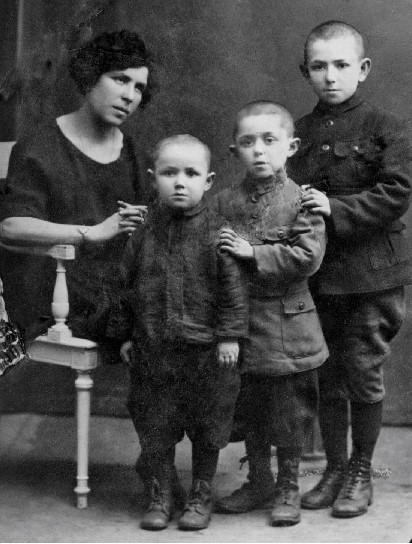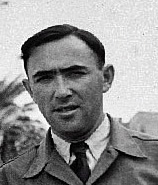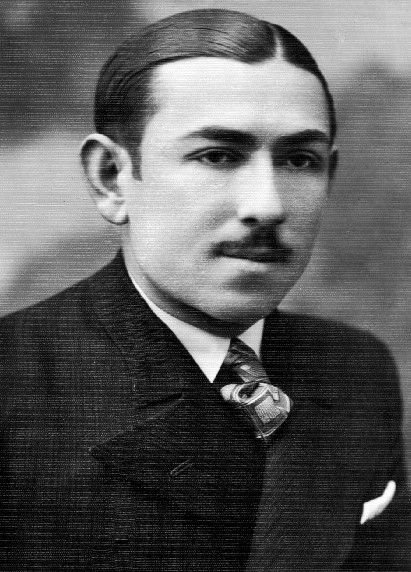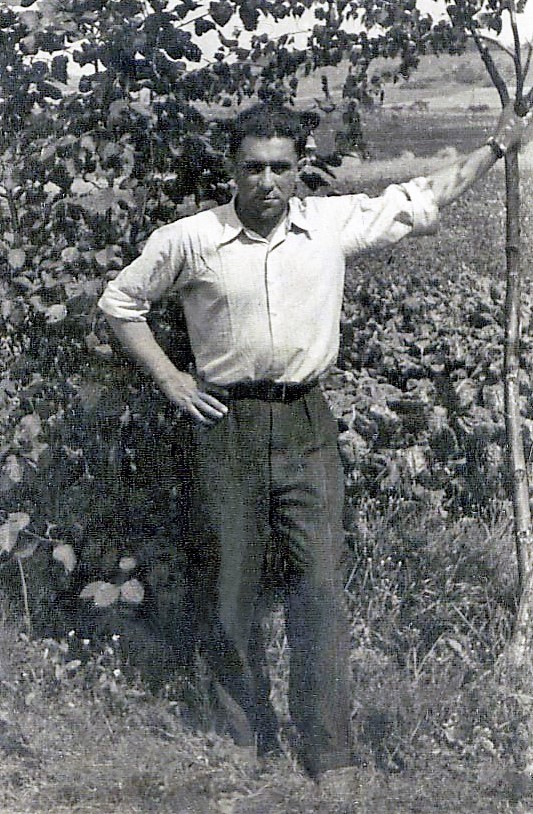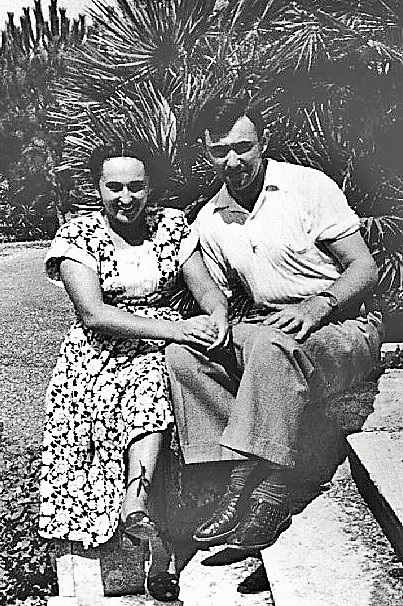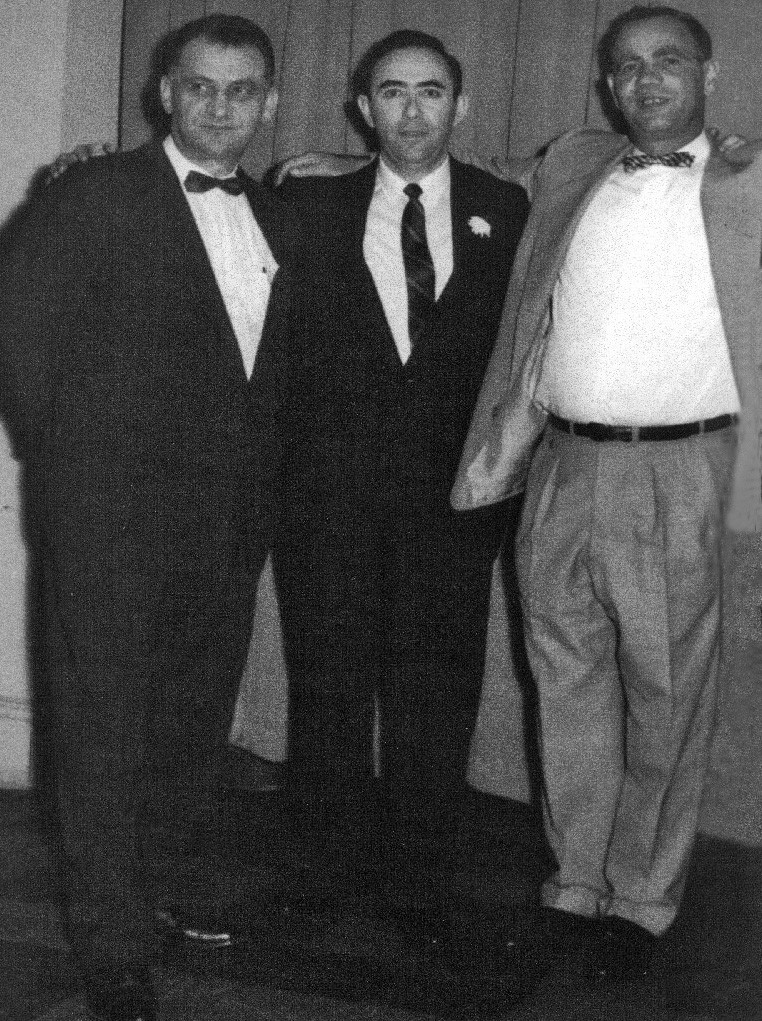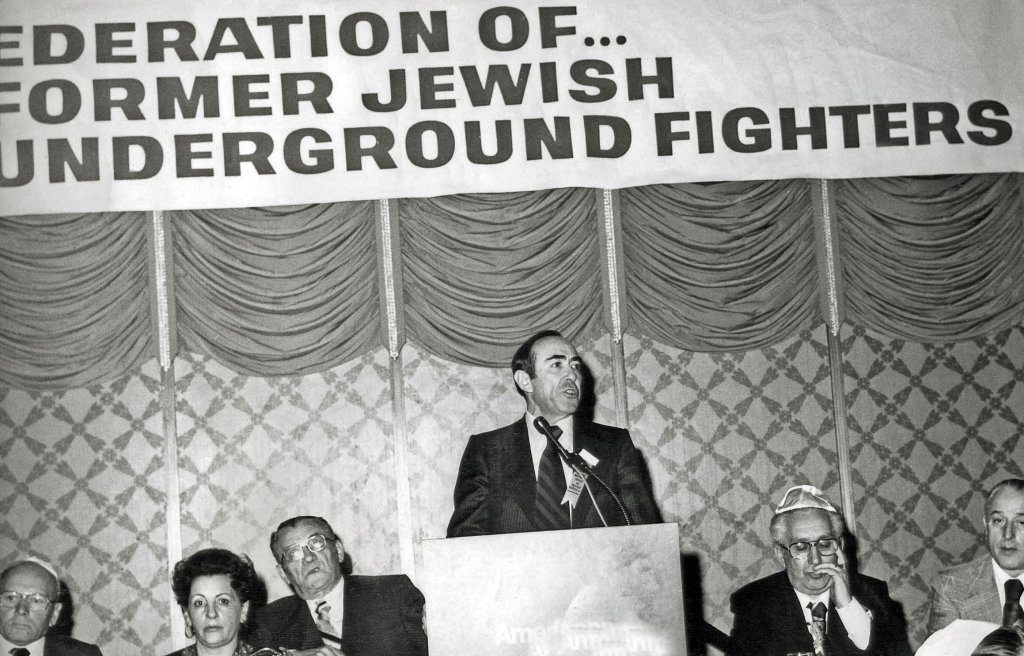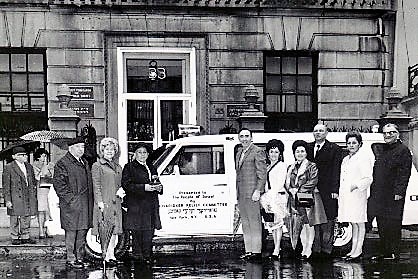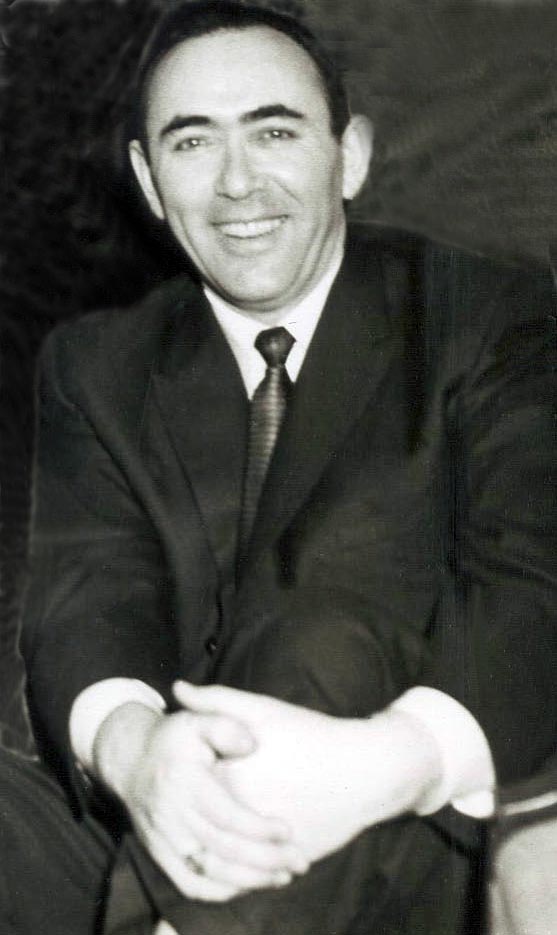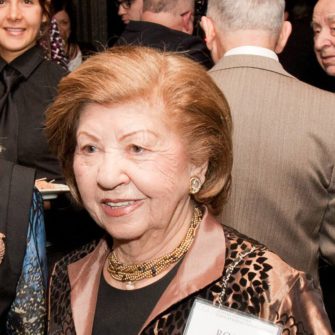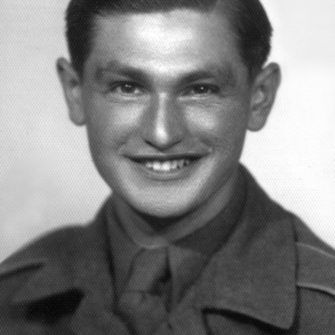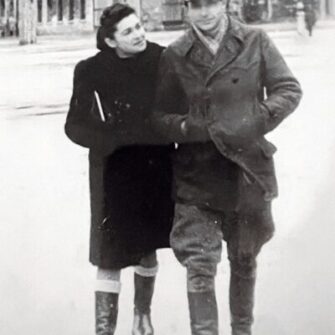Pesach (Paul) Friedberg
Pesach Friedberg, the youngest of three brothers, was born in Novogrudok, Poland, on September 15, 1918. He never knew his father, Eli, who was murdered during a pogrom in Poland before his youngest son was born. His mother, Hinda, raised Pesach and his two older brothers, Herschel and Sholom, herself, and with the support of Pesach’s paternal grandmother, gave her sons a strong educational and religious upbringing. Pesach’s grandfather, who had businesses in America, desperately wanted his family to join him there. However, so strong were his grandmother’s religious convictions, among them that the Sabbath could not properly be observed in America, they eventually hindered the family from leaving Poland before war broke out. And then it was too late, for most of the family remaining in Poland was doomed.
Pesach’s mother, Hinda, was killed by the Nazis at the beginning of the Jewish persecution in Poland. He watched, helpless, as his mother and eldest brother, Herschel, were led, along with a thousand other Jews in Novogrudok, over a bridge under which was a river, a natural grave. As the Nazis began their shooting, murdering each man, woman, and child crossing that bridge, Pesach vowed they would never have that chance with him. The deaths of his mother and brother gave Pesach the courage and determination to take the risks necessary to survive the Nazis. Separated from Sholom, his one remaining brother, and with no family left, alone in the world, Pesach was among the first to join Tuvia Bielski and his brothers. Here was his opportunity to resist the Nazis, fight for freedom, and save those he could.
From 1941 until the end of the war, Pesach Friedberg operated as part of the strategic underground movement known as The Bielski Brigade, located in the Puschcza Naliboczka, the dense forests surrounding Novogrudok, Poland. As a member of this group of organized underground fighters, Pesach helped save the lives of more than twelve hundred men, women, and children. With extensive knowledge of the surrounding areas, his ability to speak several languages fluently, his handsome appearance and self-confidence, Pesach often posed in stolen uniforms as a Russian officer or a Nazi sympathizer. He would have meetings, drink vodka, and come away with information. These skills were vital for interrogating, planning, and carrying out raids throughout the nearby countryside, destroying railroad tracks to further hinder the Nazis and to capture local traitors and, on occasion, Nazi soldiers, all of whom were swiftly dispensed with. Pesach was able to successfully fight the Nazis for nearly four years.
It was during his time with the Bielski Brigade that Pesach met Lea Berkowsky, the woman who would become his wife.
Things were very complicated for Pesach when the war ended. He had fought brilliantly against the Nazis, only to find upon his return home that he was going to be sent to the Russian Front, where he would surely die. Always a quick thinker, Pesach knew that he didn’t survive the Nazis only to be killed in another army. He escaped again, this time taking trains and following a network of supporters through Austria and Hungary until he could get word to Lea. When town officials came to her home looking for him, Lea pretended she never knew Pesach at all. Her parents recognized that this was very dangerous for Lea, and so she escaped again, this time to reunite with Pesach and begin their life together.
They arrived in Rome in 1945, where they married. Pesach’s dream was to go to Israel. He was fluent in Hebrew, loved Jewish culture and religion, and was extremely patriotic. He wanted very much to celebrate his freedom and begin his life with his new wife in Israel. However, things did not go exactly as planned. Lea became pregnant with their first child and it was not possible for them to travel when their permits came through. Instead, Pesach learned Italian, adding this beautiful language to the many he already knew, and got a job working for the UNRA, supplying food to survivors of the Holocaust.
Rome was easy to love. Beautiful city, beautiful weather, wonderful charming people. The contrast to the life they’d left behind was enormous, and they were forever thankful to be young, healthy and alive. With the birth of their first child and Lea’s parents finally coming to Italy as well, it felt safe in Rome after the misery of war. They lived there happily for five years.
Eventually, the family came to America, settling first in The Bronx, and then in Queens. Several years after arriving in his new homeland, Pesach opened his first restaurant on 35th Street and 7th Avenue, aptly named Paul’s. Hundreds of people were fed breakfast and lunch daily by Pesach and Chernia, his mother-in-law, the chef. Lea worked the cash register and soda fountain. Paul’s became a favorite place to eat for everyone in New York’s garment district, and especially those working at Macy’s, located right across the street.
Additionally, Pesach became President of the Novogrudok Association, named for the town where he and many of the partisans were born. He became a spokesperson for the Jewish people, working tirelessly for Israel, raising funds to purchase ambulances. He and Lea became involved with local schools, recreating history for the students who were fortunate enough to interview them as a primary resource of events in World War II, specifically the Bielski partisan group. After Pesach’s death in 1996, Lea became his voice. She gave numerous interviews, both on radio and TV, appearing on the Paula Zahn show, and collaborated with the NY Times writer Peter Duffy on his book, The Bielski Brigade. Lea Friedberg and Peter Duffy visited many synagogues to tell her story, and many times Lea would entertain the congregation with songs, both tearful and merry, to evoke the times in the “woods”.
Lea and Pesach met in The Bielski Brigade, survived and fought back as members of the Bielski resistance movement, and spent the rest of their lives together. After the war, these partisan friends became each other’s families, the families so many lost because of the Nazi persecution. The bonds developed during their years in the forests of Poland would last until the end of their lives.
Written by Adele Dinstein, Pesach’s daughter.

